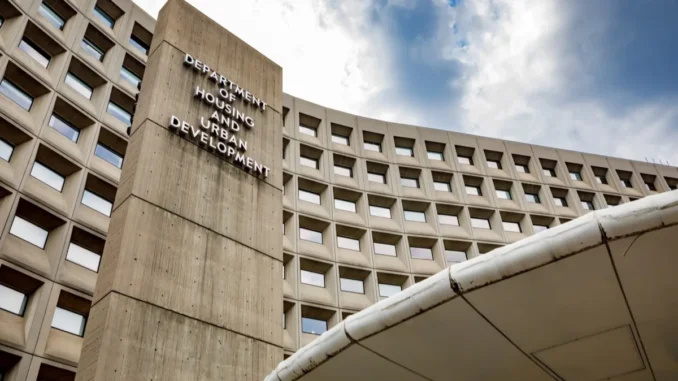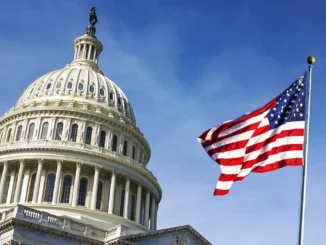
As part of the budget request submitted to Congress by President Joe Biden and the White House, the U.S. Department of Housing and Urban Development (HUD) detailed some of its hopes for Ginnie Mae. This includes an increase to its 2025 budget authority that, in part, will go toward management of the Home Equity Conversion Mortgage (HECM)-backed Securities (HMBS) program.
According to HUD’s congressional justifications for the 2025 budget request, it is seeking $67 million for Ginnie Mae, an increase of $24.6 million from the total funding level for 2024.
HMBS program priorities
Although analysts have recently characterized the HMBS market as “very liquid,” HUD and Ginnie Mae continue to be concerned about HMBS liquidity for program issuers, according to the budget documents.
“The cost and availability of liquidity for HMBS issuers remains a source of concern and requires continued focus, lest this lack of liquidity threaten the availability of HECMs for future borrowers,” the document reads. “Inside the current environment of high inflation, increasing interest rates, and tighter financial conditions in the banking and nonbanking sectors, there is heightened economic risk and potential for forward and reverse mortgage issuer defaults.”
The strain on the HMBS program is evidenced by the extinguishment of the Reverse Mortgage Funding (RMF) HMBS portfolio in late 2022, the first default of a Ginnie Mae-guaranteed HMBS issuer in the program’s history.
“In response to the market conditions facing its counterparties, Ginnie Mae is proactively seeking to address exposure to risk and allow quicker paths to HMBS securitization to support issuer liquidity,” the document explained. “As such, Ginnie Mae requests resources dedicated to this program to assist in program enhancements to stabilize/sustain the reverse mortgage program.”
Additional budgetary resources will go to other initiatives to keep the HMBS program stable. This includes support for any future defaults, oversight of the HMBS application process, performing operational impact assessments, engaging with business partners as needed, and supporting any new products that may come out of current program enhancement efforts, the document stated.
In addition to ongoing modernization efforts for its HMBS platform, Ginnie Mae announced earlier this year that it had begun exploring the development of a new HMBS product.
‘Significant’ strain remains
Part of the issue with the HMBS program is that borrowers continue to make withdrawals, so program administrators are actively seeking ways to participate in securitization.
“The acquisition of the defaulted portfolio has left Ginnie Mae with an asset that continues to generate borrower draws,” the document reads. “It is critical for Ginnie Mae to explore the benefits, and potentially establish the capability to securitize mortgages as part of its efforts to support liquidity in this market that remains under significant liquidity strain.”
Additional staff is also needed to continue the goal of stabilizing the HMBS market, the document stated. Of the $24.6 million in additional funding requested, $4.4 million would go toward the hiring of 19 additional full-time equivalent (FTE) employees to more adequately manage the HMBS portfolio.
“These FTEs are needed to support the growing operations and reforms around the HMBS program,” according to HUD documentation. “This level of funding will allow Ginnie Mae to make real progress on addressing present and emerging needs to stabilize reverse mortgage markets. These resources will also support critical pay for identified and approved staff.”
Ginnie Mae detailed that the HMBS program does not have a dedicated product manager, something that would enhance the company’s ability to improve the management of the program, the company explained in the document.
“Additional support is needed to ensure that there is bandwidth to properly evaluate each major product line and engage in revising product features and guidance on both a routine and urgent basis,” the document stated. “At present, various Ginnie Mae staff across offices share in this obligation, but dedicated support is necessary to ensure proper oversight over each product line.”



